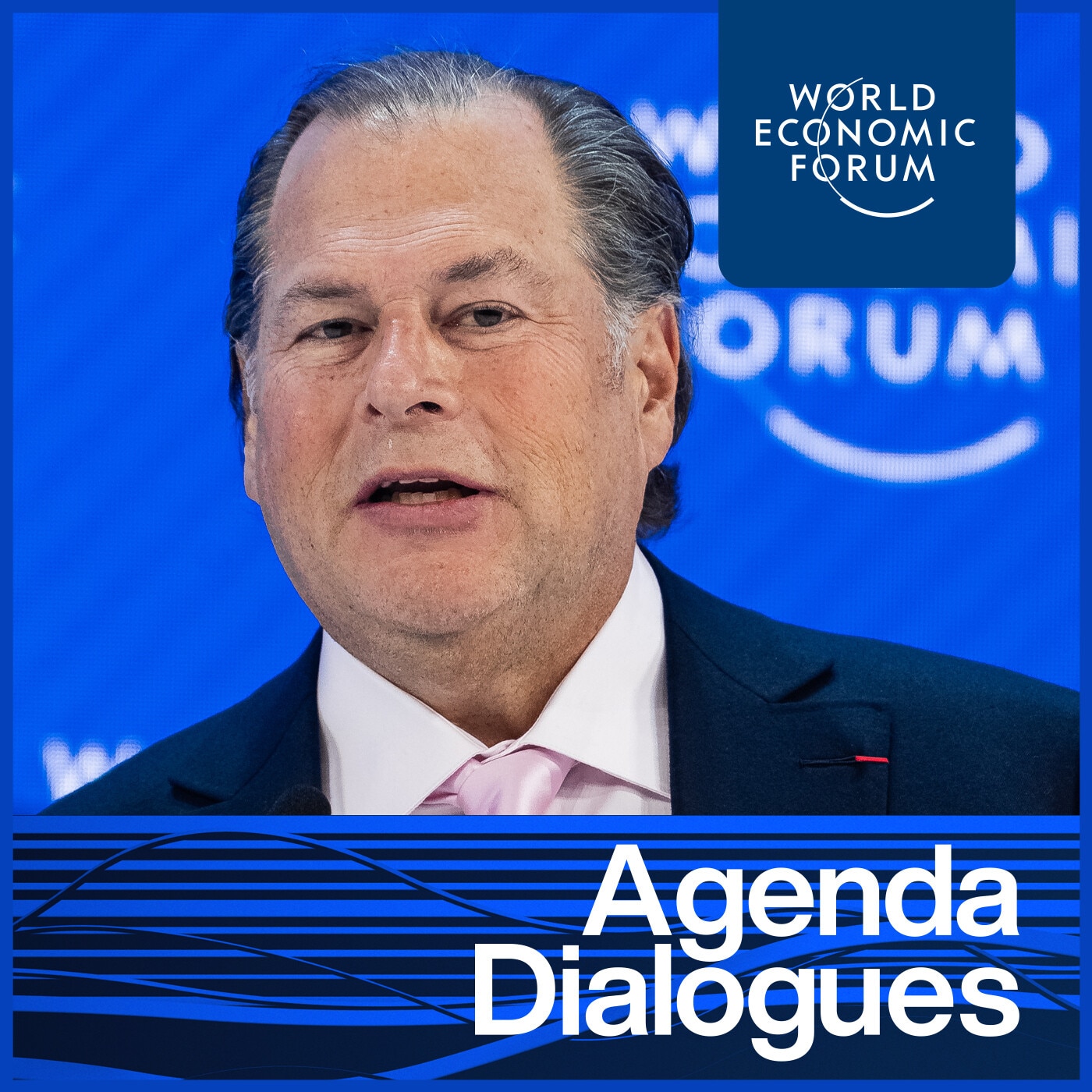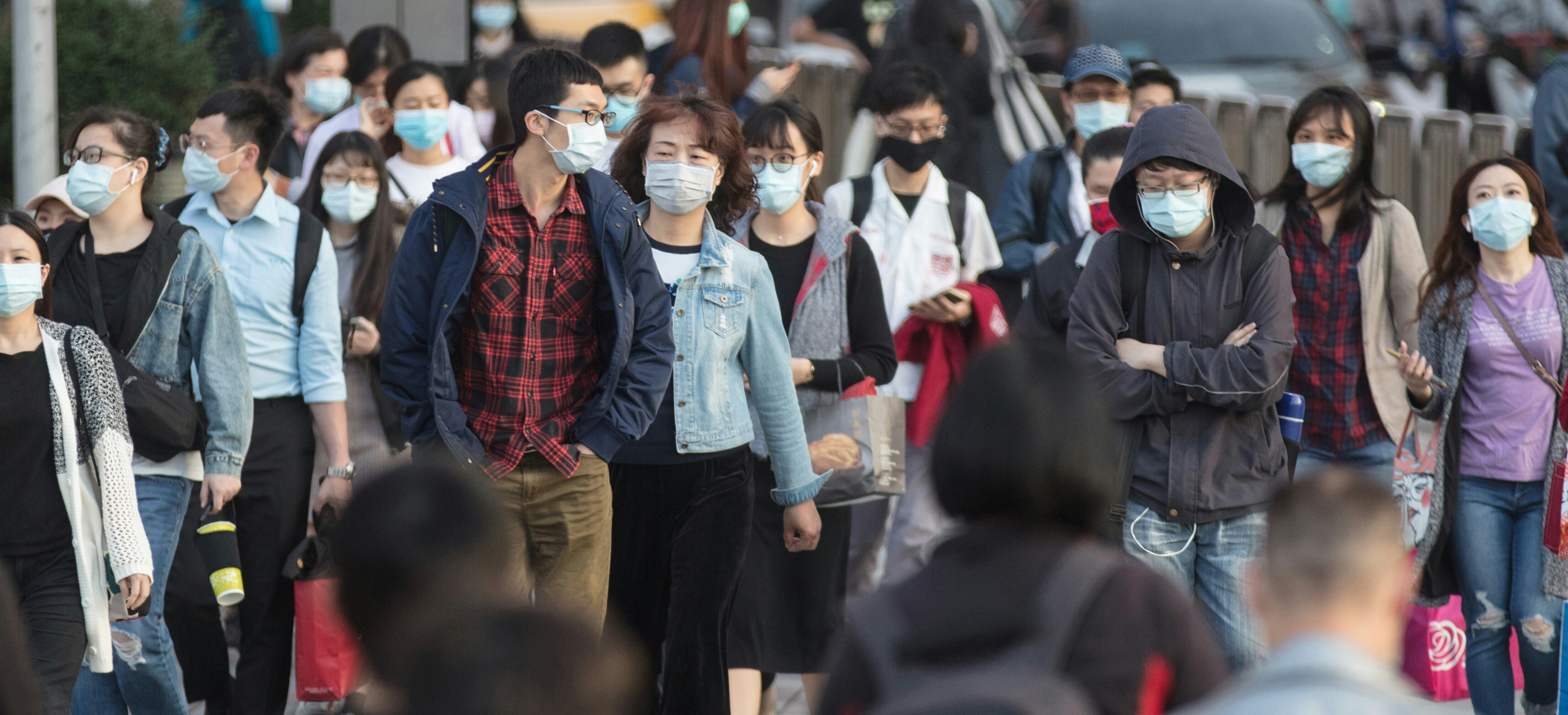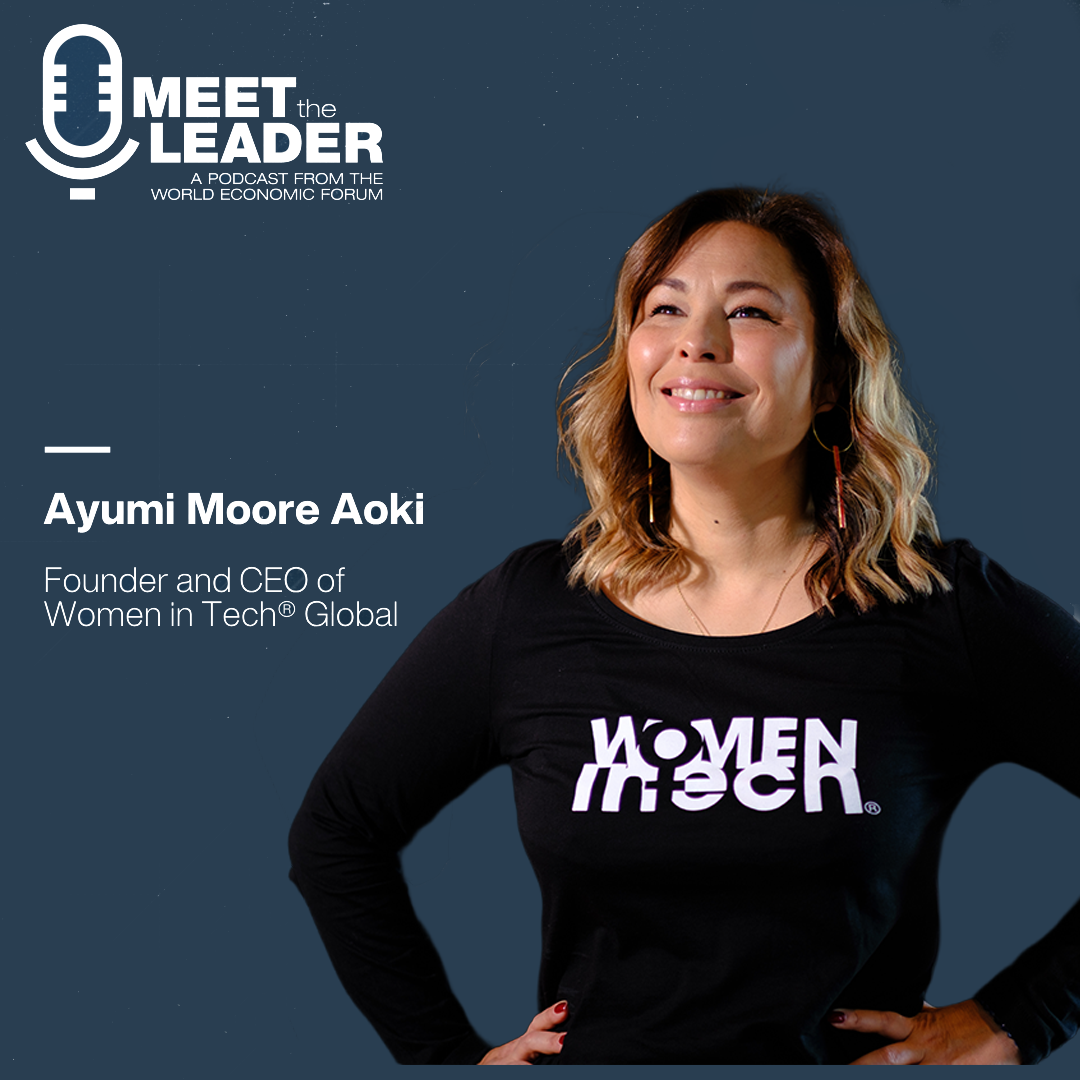Special Meeting 2024: AI Powered Industries
Podcast transcript
Vijay Vaitheeswaran: Good morning, everyone. Welcome to our session on AI-powered industries. I'm Vijay Vaitheeswaran, I'm the Energy and Climate innovation editor for the Economist. It's my great pleasure here to be your immoderate moderator today for our session to have such a distinguished panel joining us. I'll introduce them in just a moment.
But the topic – we really can't swing a cat these days without hitting an AI session or debate or discussion but we promise you this will take you further than the ones you've been to. That's the aspiration I set for my experts to produce some breakthrough insights today.
We all know something of a golden age is coming. A golden age of innovation that's going to be enabled by AI This is not the first time in human history. Right, there have been waves periodically. We can look back to the great Victorian age of invention, for example, nearly a couple of centuries ago, where much of modern chemistry, modern science was invented often by individuals at that time working collectively or in competition with each other.
But much of the basis of the modern 20th century advances, the internal combustion engine, the modern biology, were invented at a time of extraordinary ferment in just a couple of decades that took 100 years to unpack and unfold at value that was created by the basic science. It takes decades sometimes to develop the industries or the technologies like the power grid or the the nexus of the internal combustion engine and gasoline, the energy industry that powered a 20th century – mobility, for example.
So, we're at that early stage, where the opportunities will be ahead of us, the opportunities to seize but as well, false leads and dead ends as well. We'll find that out as well. There are pitfalls a plenty.
If AI lives up to the potential that's being investigated today, there are estimates that we could see $2-4 trillion additionally in global corporate profits that are added, potentially could deliver the biggest impact in some sectors like banking or high tech, life sciences.
We'll talk about what our experts at the table think about this and the ways that it might raise productivity have been highlighted by analysts, whether it's interacting with customers or creating content, which of course as a content creator, I'm very much against that particular application. Think we should put that on the side.
But nevertheless, software code, natural language applications – we'll hear much more about this. So, dozens of potential applications but as well, there are pitfalls, we'll hear about those as well along the way. And in this particular session, we're going to also try to focus in a little bit with specifics. Get down from the 30,000 foot level.
Let me introduce our panellists who will get us going here. To my immediate left Abdulla Fakhro who is the minister of industry and commerce in Bahrain, we have Jean-Pascal Tricoire, who's the chairman of Schneider Electric. We have Cheryl Cui, co-founder and chief executive officer of Bota Biosciences. We have Robert Falck, founder and CEO of Einride and Simon Freakley, who's the CEO of AlixPartners. Give them a nice round of applause to welcome them, get them warmed up. Thank you, and we're off to the races.
Minister, let me start with you. You have thought deeply about this topic in your country. You've already undergone something of a transformation and diversification of the economy, of course, from energy into services. And now you're looking at the opportunity that's being presented by AI. Can you give us your governmental perspective on how you're looking at this opportunity?
Abdulla Adel Fakhro: Sure, Vijay. Thank you, firstly, for having me here. As you mentioned, Vijay, the Government of Bahrain is on its way to being a properly diversified economy. So, over the past 20 years, the government of Bahrain has diversified away from the oil and gas sector into sectors which are basically service-based sectors.
About 20 years ago, oil and gas sector made up above 40% of contribution to GDP and today, it's below 18%. And it's no longer the number one contributor to GDP, financial services is.
So, financial services as well as other service sectors, service-based sectors, such as the logistics, the ICT sector, are playing a more and more important role when it comes to contribution to GDP. And it's these sectors which are well placed to benefit from the AI kind of revolution. So, services such as financial services, insurance, legal services, health care, cybersecurity are really at the top of our kind of priority list of the government.
So, AI will do things faster for these sectors, productivity in these sectors will go up considerably and as a result, of course, contribution to GDP, in turn will go up. But as a government, I think some of our priorities really have been investing in the technology infrastructure to allow, you know, businesses to benefit from this wave.
Vijay Vaitheeswaran: Is there a back end infrastructure investment?
Abdulla Adel Fakhro: Absolutely, back-end infrastructure investments. And we see that the return on these investments are significantly higher than other infrastructure investments and you know, there is of course, a socio economical return.
And, also, we realise that the importance of being quick to respond when it comes to new technologies and new industries, it's critical that we don't over-regulate, especially when it comes to, for example, AI, but at the same time, because, of course, too much regulation can limit creativity and innovation, but at the same time, keep our finger on the pulse and be aware of what's happening, so that we can react quickly to opportunities but threats as well.
Vijay Vaitheeswaran: So, what's an example of an area of regulation where you have taken some steps? I imagine, I mean, there's a debate about how far to go with data privacy and nationalization risk of global data.
Abdulla Adel Fakhro: Yeah, so, what we did – an example, for example, is we had a cloud-first policy in the government of Bahrain and now over 90% of all government data is on the cloud and services are all cloud-based.
Bahrain introduced the first data jurisdiction law, which allows, gives sovereign treatment to data. So basically, data stored in Bahrain is treated similar to how an embassy would be treated as only a court in the nation of origin will be able to access that data.
And as a result, of course, we saw a lot of demand from a company such as AWS, who decided to set up their first hyperscale data centre in Bahrain as a result, of course.
Vijay Vaitheeswaran: The inexpensive energy had nothing to do with it?
Abdulla Adel Fakhro: No, I don't.
Vijay Vaitheeswaran: Not at all. OK, yeah.
Abdulla Adel Fakhro: We were able to introduce this jurisdiction, this sort of regulation very quickly, within a few months, which is really what we see as an opportunity.
Vijay Vaitheeswaran: So agility matters.
Abdulla Adel Fakhro: Agility is, yeah.
Vijay Vaitheeswaran: Great, those are some great examples. Thank you. Thanks for setting us up. Now, let's start with an industry perspective, then. Jean-Paul, let's turn to you.
Your company, our audience will know, has a deep experience with many customers in energy management. You look across sectors and so what do you see when we ask this question about the most promising industrial applications as well as maybe some of the challenges? Where do you see the opportunities at?
Jean-Pascal Tricoire: I would say probably all applications. On AI, is a big disrupter but you have to put inside the wider range of technologies or transitions which is happening at the moment. But what impacted the company, we are the partner of many companies in the field of digitization, on energy transition. That's what we do, decarbonization of their processes.
When you look at AI, it's impacting us in two ways. It's a major disrupter. Number one, we are the biggest supplier of energy solutions to data centres – our data centres are booming because of AI when you change your CPU by a GPU, that energy need is much bigger, right? On today, we started with 0% of our turnover 15 years ago in data centres, today it's 20% of our total turnover, $8 billion of turnover that we do every day supplying those energy solution to hyper scalers data centres, a lot of them in Saudi Arabia, for instance, as we speak.
But at the same time, this digitization is the biggest disrupter to efficiency. The biggest provider to efficiency in smart buildings, smart manufacturing, smart cities only brings much more efficiency or much more savings than the consumption, which is coming from data centres. So now...
Vijay Vaitheeswaran: So, you actually do believe that it's not just a double-edged sword, cuts both ways, you think one side of that ledger is stronger – the efficiency side?
Jean-Pascal Tricoire: I don't believe. We are doing everyday with ou customers, right?
Vijay Vaitheeswaran: OK, good to hear it.
Jean-Pascal Tricoire: So, when you put, it's not AI in itself, you have to put it together with other energy trends or other technology transitions: IoT, which is connecting everything. So, generating data, big data, which allows you to store a lot of data and work on it and then, software digital twin on AI, that you can only build meaningfully because you've made the rest.
Now, in the industrial world, all the customers in this room will recognize that there is no point to do AI if you cannot feed back to the physical world, you cannot improve an industrial process if your machines are not reacting to the insights of AI.
Vijay Vaitheeswaran: So you need those rapid innovation loops.
Jean-Pascal Tricoire: Yeah, all of these are fitting, the more products are connected, the more they generate data, your AI is not is as good as the best of your data. This data needs to be structured on the way at Schneider. I've developed, I would say, the most adopted database for industrial infrastructure on industry but the benefits are already in all directions, right?
Its energy efficiency. Its productivity, its workers safety, when you can give insights to your worker with augmented reality or trend and without risk because of virtual reality. It's optimizing everything on the shop floor at the country level, at the level of your factory, on across your factories across your supply chain.
We use also AI to optimize the flows with our larger ecosystem. So it's absolutely vital that you've been that quality of data and then build the algorithm on the capacities on the data and the best of results you can attain is when you go beyond your own company and you reach out to what we call the scope three on all the people, all the actors. So benefits everywhere.
But it's not only AI for AI, it's AI connected to the physical world and it goes into much bigger loop of digitization and all of this is happening as we speak. So the train is leaving from different station and we better board.
Vijay Vaitheeswaran: So, you're on you're on board all these trains as it sounds like and you're certainly giving us a sense of that dynamism of the industries you're working with. Although, I'm reminded by your point about the need to connect with real data, quality data, the old adage, right – garbage in garbage out – so, you need to have constant updating and connection with updated information.
That's a very optimistic perspective we've been given. We'll dig into that a little bit more. But as you noticed, my distinguished speaker would not select one or two industries to say they're most likely to see the early applications. I want to dig into a case study where I think we can.
I turn to our next speaker Cheryl. I think you do have a favourite sector where you'd like to see AI have a big impact or are already beginning to see it. Can you tell us about the sector you work in?
Cheryl Cui: Yes, I'm trained as a biomedical engineer and then what Bota does is we try to accelerate the shifts from the biological design to scale up manufacturing and to produce sustainable goods. So what we do is that we engineer microbes, so it can make chemicals. But being able to engineer the microbes very efficiently, that takes a lot of human intelligence in the past. And then, there's a lot of unpredictability involved.
And then what we can see is really, we first started the generation of biotechnology with the intersection with the information technology. And then now is to take it to the next level and then really to embrace what AI can contribute to the field. And then for us, the genome language is the language of nature. ATCG but how much do we truly understand it?
And then for the past two decades, people have tried accumulate a lot of data from the human Human Genome Project and but that's from human. There's a lot of organisms that exist in nature, right? But how does that genotype linked to the phenotype of the function of the proteins of the organism that enabled our certain behaviour? That's a big gap.
And then I think then, in the next portion, I think all the biologists will turn into information technologists and then we have to embrace the new technology to enable newer discovery. I think AI for science is in a sector where we hope AI doesn't just generate things that exist for us but able to discover things that we don't know. And I think that's what's intriguing for us.
Vijay Vaitheeswaran: So you've sketched out a vision of convergence, really is what I'm hearing, between the biological world and in this case, the IT or technological world, very much happening. And you see the potential for accelerating discovery, presumably, because drug discovery, we're looking at, you know, bio prospecting, or you see this with health systems data, for example.
One could go a lot of different directions here too. Where do you see some of the promising applications?
Cheryl Cui: I think is already happening in the whole bioscience industry, from drug discovery all the way to health science data.
For the sector we're in is called industrial biotechnology and then one of the components involved is like enzyme designs. You have enzymes that works in nature. You get it from a biodiversity search. But how can you increase the efficiency of that, under certain industrial settings, with the temperature with the pH and then able to predict the sequence of the enzyme using AI, with computational biology is where we can make a difference.
We already see like, there's an acceleration of at least five- to 10-fold from what we can do just from the scientists alone. So, every day I think we're working with an AI companion right now.
Vijay Vaitheeswaran: Do you have access to all the data you need? There has been a bit of a movement towards open access, open science, open publishing, even of scientific reports. But a lot of data is still held behind silos. Am I right?
Cheryl Cui: Yes, yes, definitely. And it's virologist is like, the tourist for keeping the data consistently.
Vijay Vaitheeswaran: Data hoarder...
Cheryl Cui: Exactly. Yeah. And it's actually, I think it's the digitalization that will make a difference, just like in the energy sector is the same. So it's how we're able to generate data more efficiently and able to keep high fidelity data that's able to share across the board. I think that will really make a difference in the future.
Vijay Vaitheeswaran: Thank you. Robert, you come from another industry as well. Vertical, innovative startup, mobility, autonomy, all of the cool buzzwords, right – you can dine out for weeks on the cool stuff you've been doing. How do you how do you see this question of the AI opportunity?
Robert Falck: Yeah, I mean, we started with the use of AI to actually find all the buzzwords for how to create a cool company.
Vijay Vaitheeswaran: Exactly. And to get the funding round.
Robert Falck: Exactly.
Vijay Vaitheeswaran: You ticked all the boxes.
Robert Falck: Exactly. Now, all jokes aside, I think that I see AI as a toolbox. It's like when we invented the steam box or steam engine. It had literally the potential to industrialize the entire world. AI is literally the same. It's the first digital tool that can be applied to completely change the way we work. And in a way, the first tool that we have to optimize the digital world.
Previously, we have been utilizing digitalization to apply the entire, make the world digital. Now we literally have the steam engine that can propel the entire industry forward. And I think that's where it's also so hard to predict exactly how it could be utilized. But in our industry we use digital, electric and autonomous. And what's fascinating with these three technologies is when combined, the more powerful that they are by themselves.
Because if you want to, for instance, digitalize, if you want to go electric for heavy-duty freight, you can't do that without digitalize it. And if you make it autonomous, it's actually a superior business case. But none of that is doable without digitalization and tools like AI to enable the speed of transitions that are required to make these things happen.
Vijay Vaitheeswaran: What would you like to see as change in the way that we think about AI based on your assessment there?
Robert Falck: Really, like with all that being said here because it's a consideration of digitalization. It is still the predictional models, based on the underlying data. That means that if there is no quality of the data, there's no business case what actually won't be achieved. And I think that the physical world will be quite unchanged.
Because even in the digitalized factory doesn't necessarily mean that you become more efficient, it's what you utilize it for that creates the wealth. And that's the same with for me with AI as well.
Vijay Vaitheeswaran: Right? We're going to pick up on that point, too, I'm sure because I heard some comments from our fellow speakers. Simon, coming to you.
You, your company, consulted widely with the leading Fortune 1000 companies and so you have an inside perspective on what the C-suite is thinking. When I hear analyst calls, the quarterly results calls that our CEOs and CFOs give. This is what we do, journalists at the Economist, we read the transcripts, this is our bedtime reading.
A few years ago, you couldn't get by without seeing conventions of ESG for example. Now those have dropped off dramatically. And instead, you hear AI, every company talks about the AI strategy – AI this, AI that. Give us a reality. What are you finding when you look under the hood? What's actually going on?
Simon Freakley: Well, thank you, Vijay. And as you say, we have the privilege at AlixPartners of having a front-row seat, sitting with our clients as they look at their biggest opportunities and their biggest challenges but one insight I'd give you is that in the 2024 budgeting round that AI or generative AI occupies about 80% of boardroom discussion of strategy meetings, it occupies about 3-4% of their budget line items on cost.
And so, the amount of thinking time was going into this is huge. The amount of budget dollars being applied to it are relatively small. Why is that?
Well, it's because people understand that generative AI is going to disrupt every company in every industry in every geography. They just don't know quite what it'll mean for them in their company. Now, what we're seeing is that people are leaning into the efficiency plays that AI provide.
We heard earlier with Schneider exactly some of the ways that can be done. So, whether it's the efficiency of supply chain or the efficiency of deploying of labour, or the efficiency principle pricing models, either in consumer products or retail, people are leaning into that because they can see how to do it.
Vijay Vaitheeswaran: That's a low-hanging fruit, right?
Simon Freakley: It's a low-hanging fruit. What they can't see yet is how AI can drive revenue growth generally and that's why people are holding back in terms of deciding how to apply their investment dollars.
Vijay Vaitheeswaran: Just to push ahead on that a little bit further. Surely, efficiency plays themselves can show quick payback, right. Presumably that's one way to show additional revenues, even if you're not creating entirely new business lines, right. Are we seeing that yet or not yet?
Simon Freakley: Yes, we've all read the examples of efficiency of call centres, the efficiency of business modelling and those efficiencies are now well-documented and obvious. It's just we haven't seen how to drive revenue growth – not just important, by the way, to drive company performance but important in terms of dealing with societal issues, growth in economies.
With the major economies of the world actually having a shrinking labour force, unless AI can generate efficiencies, how are economies going to grow? And I do think, by the way, that one of our insights is that the gains are going to be through the fusion of artificial intelligence and human capital. So it's going to be the combination of those.
That's why I think Microsoft was so smart calling their product copilot. I wonder actually, whether there's we should have badged artificial intelligence, augmented intelligence, right. It's going to be the fusion of human capital and artificial intelligence that produces much of these gains.
Vijay Vaitheeswaran: So that raises a very interesting prospect. If we begin to see, I hope it becomes the vision of augmentation that you're talking about but at least in the first instance, the efficiency will lead to headcounts being reduced, for example, as technology substitutes for humans.
We know, historically throughout history, new technologies that have this kind of disruptive effect, in the long run, more wealth is created, potential jobs are created in new higher value areas. We know that's a long-run story. The challenge with AI, it is posited, is that the change is happening much more quickly this time. That the ability of societies to respond at the human pace of response is slower than the pace at which technology is advancing.
Let me come to you, minister, on this question because you not only think about the technology, you have a mandate also for the people of your country and in the jobs when you encourage all those efficiency investments and productivity gains. How did that work out in the population at large or amongst your fellow ministers who think about employment, for example?
Abdulla Adel Fakhro: I don't see a major disruption to employment because, as you said, there would be new industries coming up while AI will replace, you know, some of the lower-value jobs. Some of the higher-value jobs will be created as a result.
Vijay Vaitheeswaran: That's the theory. Are you finding this in practice since you've been pursuing this?
Abdulla Adel Fakhro: Well, we haven't seen AI being implemented in full scale in practice.
Vijay Vaitheeswaran: It's early days.
Abdulla Adel Fakhro: It's early days and I think for everybody but when we look at, for example, industry, AI will play an important part of industry but most factories or many factories are already automated. So, the high-value jobs we foresee in industry specifically will remain. And, you know, the major impact is possibly going to happen in the service sorts of industries.
But as I said, you know, we feel confident that there will be new and emerging industries which will come up and create as a result of the growth in the global economy, of course. New sectors, new industries, will create new opportunities and new jobs. So definitely, there will be a shift.
Vijay Vaitheeswaran: Does someone else want to jump in on this particular question about the human impact of the pace of change? Yes.
Jean-Pascal Tricoire: I think AI is really solving one of the issues that we have today, which is the speed of deploying things. I'm speaking about the energy equation where one year ago, in one panel, I think in Versailles, the world needs to at least twice faster on energy efficiency.
What we need are people able to implement and intervene in buildings, in industries, in cities to make it happen.
Vijay Vaitheeswaran: Right.
Jean-Pascal Tricoire: When you use AI and you apply it on the ..., you will get a saving of 20-30%. You will be warned of issues before they happen when at ... we worked together to deploy predictive analytics on 2,500 rotating machines soon to be 10,000.
That means we're putting on the monitoring for uptime, I mean, avoiding breakdown, outages, accidents but we're also allowing people to intervene much faster and much more precise nuancing. That's number one.
Vijay Vaitheeswaran: So predictive maintenance but the next generation of it.
Jean-Pascal Tricoire: Yeah. No, the existing generation of it and working on the next but that means you avoid tonnes of outages and potential accidents, which would have huge consequences. Thanks to that. We do that on building. Cheater. You say that and so on. T
hen you, AI, is taking a lot of boring jobs like visual inspection and production chains when it's difficult to find operators. Let's not fool ourselves, right. Not many people want to work on the shop floor – those things are getting intermediate with a better result. Because it's machines are pretty good at doing those repetitive recognition jobs.
So, I think that solving actually a problem of labour shortage. Coding, for instance, automation system is highly facilitated by AI and today you don't have enough operators to do all those things that you guys are needing on the shop floor. So yeah, there is the thought of some jobs are disappearing. But there is a fact that we are resolving a massive problem of competency on labour shortage all around the world.
Vijay Vaitheeswaran: So that's, I want to come to you, Samuel, because you have a global perspective on this. The story I just heard – very exciting story – I wonder if the idea of labour shortages, of substitution, the boring jobs maybe being done by AI is more relevant in developed economies, where in emerging economies we have a demographic boom in many countries, Sub Saharan Africa, in India, South Asia.
When there are people looking for those factory jobs and we may see what economists have called a premature deindustrialization. The trend that people are worried about that is that you can't have the China effect again for India or China. We'll come to you both.
Simon Freakley: Let me start on JP's point. I mean, I think that if you look at any of the major sort of developments, whether it's the wheel or the plough or the printing press or the steam engine or the internet, none of those have resulted in a massive drop off of employment. So I don't think that AI is going to be the exception.
I don't think this will result in mass unemployment, this dystopian view that somehow we'll all be out of a job, I think is just wrong. I think the labour shortage question is key because as demographics show a shrinking working population in developed economies, I think this is going to be a way that we can drive growth notwithstanding that.
But your question about developing economies. Take India, for instance, now the most populous nation in the world; it's the most digitally enabled nation in the world; over 95% of the population of India now have digital identities in Europe, it's about 35 in the US, maybe about 34.
The point of the story is that massively growing workforce but digitally enabled workforce. So, I think that, actually, it's going to be a boost to digitally enabled developing nations rather than an inhibitor and of course, what we're all seeing in the Kingdom of Saudi Arabia is just a massive investment going into making sure that many of these opportunities are leading edge.
Vijay Vaitheeswaran: So there's a potential for leapfrogging.
Simon Freakley: There is absolutely a potential for leapfrogging. I think the short-term issue, which is quite different to the long-term issue is that much of our current workforce do not have the digital skills to be relevant in our changing marketplace and that is a challenge. And the responsibility for that upskilling is with the individual, the company and every government but in the successive generations that will have those skills.
I think we'll find that unemployment will not be an issue.
Vijay Vaitheeswaran: Rob, do you want to come in on this?
Robert Falck: I think one of the things that makes us technologists slightly different is that historically, efficiency gains has been done in the labour segments. That means that often being quite often that I wouldn't say unskilled labour, but that has mostly been where we utilize robotics for and so on.
The area we go into now with AI has potential to replace a lot of middle-class jobs. It's lawyers, it's computer programmers, it's high-skilled, full well-paid jobs. So, the impact from society's perspective, we wouldn't be found not necessarily in that lukewarm labour part but in the middle-class economy. So, in a way, it has the potential, if not used properly, to increase the Piketty effect.
Vijay Vaitheeswaran: That's. Yes. Please jump in Cheryl.
Cheryl Cui: Yes, I want to bring a different perspective other than the efficiency increase.
Vijay Vaitheeswaran: Sure.
Cheryl Cui: I think in our field, this will really enabled unparalleled creativity. I think that's something quite different. Because right now as how the discipline is structured, people are so specialized in their own areas. Like you know, chemists, biologist. Like process chemistry, like each has its own discipline and then it kind of become a barrier for innovation.
And then what we see AI because of the knowledge structure is so different from humans, like education. It become a generalist in many disciplines. And then you would be enable some of the specialized researchers or like, you will say, I use biologists as an example, have a cohort of chemists and then programmers working with to enable ideas.
I think that's kind of the beauty of AI that would open up something other than just the labour efficiency aspect of things but bringing some novelties and innovations to the world.
Vijay Vaitheeswaran: That's a very powerful and beautiful idea. You know, we know from the history of innovation that many breakthroughs came because not the expert in this specific subject but someone with an adjacency.
Cheryl Cui: Exactly.
Vijay Vaitheeswaran: One or two steps away, comes and looks at a problem orthogonally and has the breakthrough and so, it's interesting if AI can open up that potential, that really could be transformative, not just a step change. Not linear but rather a step change increase.
Simon Freakley: Can I build on that, sorry. Go ahead.
Jean-Pascal Tricoire: Those things that AI brings to operators, workers, creators, as you say, is huge. I think the example of our customers they have people go in on the shop floor factories, dangerous processes, opening the doors of electrical substation. So, the nightmare of anybody, including me is waking up in the morning and knowing that there is an accident that took place.
Now you've got people going around with AR, Google or tablet that tell them before they open the machine or before they approach it every digital parameter of what is happening on telling them what to do and what to avoid. The number of accidents that you can avoid with that is huge.
Speak about generative AI. We do with our customers digital twin from the design to the build into the operation. Before it was engineers trained to design on its 3D models and we do shipbuilding, we do refineries, we do chemical plants.
Now, generative AI proposes use scenario, purposely use simulation to optimize things. Always there are new things that people didn't think about. So I think one of the stakes of AI is actually to democratize AI. So, to change we are working on at the moment is low code, no code AI so that everybody can prompt some functionalities which today is not obvious. You have to call a specialist to do it.
Vijay Vaitheeswaran: Right.
Jean-Pascal Tricoire: Second thing is use GenAI to formulate your request in an intelligible manner. Before you were saying you are programming things. Now you say, "tell me if my windmills are working properly today," and you will gonna have a report of all this and it's gonna come naturally.
On the ultimate goal, which we are already doing, is AI working entire of people. You don't want to manage microgrid right to make sure that it's a greener, it's a cheaper source of energy, except exceptions on AI should call you at that time. But you want it to run naturally on it's tonnes of parameter that you have to integrate before we're making causal resistance, which we are a lot of programmation.
Now that works by itself, which is a lot of time right for operators to do the added value things. I say a few elements but never forget all the other benefits, which are far beyond efficiency, safety of workers, uptime and reliability of your application when you go in a hospital like you work with him and have a hospital, priority is reliability. When you go into a surgery room, you don't care about energy efficiency. You want no outage. Those are things that digitization on AI allow you to ensure.
Vijay Vaitheeswaran: So, both of you have made a great case to keep that open mind about the potential for transformation. I want to come back to a topic that I promised that I would return to. Jean-Pascale, you previously put on the table the energy consumption of AI and also argued about the efficiency gains and you argued one would outweigh the other.
I want to give others a chance to weigh in who may have a different perspective. As we know, this is one of the hottest topics I was recently at the main energy conference in the world in Houston where this was the top issue: the energy consumption and guzzling of AI. People like Sam Altman, an AI pioneer is investing in nuclear power, he thinks that's the only long term solution. But of course, there are big debates about how much more energy will be needed.
I know you've thought about this, Robert, what's your perspective on this?
Robert Falck: I think that I'm very glad that there is this kind of awareness because I'm a big believer that AI has the potential to be one of the most game-changing tools that we have in society. But if that's going to be fully deployed, it needs to be in parallel. And back to what you said about ESG.
For me the question about the climate change take the backseat, because if AI becomes the dominant driver in business, then suddenly we don't let - we're going to miss opportunity to actually take responsibility for stopping the climate change. And for me, it's just good to have the discussion where we can actually utilise AI for the industry in the gains and that we actually use this tool to create a better society. And that discussion requires, for me, awareness.
And if we go back two, three years, no one realized the fact that we needed to build a huge data centre to generate AI. And now people have started to see that it's going to cost a lot of energy. And I think that what kind of shifts we're going to choose gonna depend on how much energy they consume.
But I just want to be sure that we create a society that is sustainable because we can't have a literal society where the AI stopped working because the wind is not blowing. That's not a smart way to do it either.
Vijay Vaitheeswaran: Well, you put me to a question when the direct to the minister, and you happen to be in a part of the world is blessed with natural resources, both the hydrocarbon kind but also wind and solar resources aplenty, we just have to step outside to discover it very quickly.
What do you think about this? The energy consumption of AI and could it be turned to your advantage? Could we see this become a source of advantage for regions like this part of the world because of that access to inexpensive energy that you become a cluster.
And maybe even related industries, we see a new map of industrialization where both with the AI-related industries but perhaps hydrogen, green, hydrogen, other things that are energy intensive, might actually begin to come here from other parts of the world.
Abdulla Adel Fakhro: I think that's that's already happening. I think it's an important point to recognize. It's good to have ambitious goals and targets. But we need to look at how we will get there of course, investment in AI and cloud computing and technologies require big amounts of energy. How will we get there is an important question.
I think the region, yes, is well placed, not only because of their natural resources but also because of the progressiveness and their, you know, their keenness to invest in new technologies and infrastructure. And so, I think, absolutely, it's a kind of an opportunity for, I would say, the GCC or the GCC region to benefit from, you know, the trend towards AI.
Vijay Vaitheeswaran: Simon, you talk to a lot of industrial companies, including ones that are restructuring. There is this discussion, particularly in Germany about potential deindustrialization or a new map of industrialization that could emerge because of where clean energy is coming up.
How seriously should we take that discussion? If we zoom ahead a couple of decades, are we really going to see traditional industries move to where the energies of the future are? Or is it something you think fundamentally that's not going to happen? The politics will intervene one last time.
Simon Freakley: I think that absolutely energy transition will be key to all agenda. But you mentioned Germany.
Germany, of course, is comprehensively being reimagined industrially, the automotive industry, which has been caught in the German industrial machine, has been recreated on the back of transition to electric vehicles, autonomous driving, not maybe a transition happening as quickly as people thought but it's happening.
What we're finding from our client work is that the winners in AI are the people who have the best data, not the people that have access to the best, large language models. And so interestingly, in 2023, $150 billion was spent developing large language models and there are now quite a number of first-class models but the people with the best data are going to be the winners.
So you think about what that means in financial services. Think about what that means in healthcare, not just what it means in automotive and industrial nations. I think as people understand how to deploy their data for commercial advantage and then work out what the consequent impact is on energy consumption and how they set it up for success is going to be at the core of those discussions.
Vijay Vaitheeswaran: That's very interesting that the old adage about the gold rush in California, the minor 49ers they were called, was the only people who made money for sure were those who sold the pickaxes to the miners, right.
But I wonder, in this case, maybe we should flip that analogy, the use of AI tools or the pickaxes, we're focusing on the companies making them but the money is still where the gold is, so, which is the data. Funnily enough.
Simon Freakley: If you look at Hewlett Packard, for instance, which had a recreation of its own or look at Dell, which has had a massive recreation of its own, their biggest opportunity may yet be coming because actually the infrastructure support, all of this analysis and data storage and processing is going to be where a lot of the money is going to be made.
They may be the new pickaxes.
Vijay Vaitheeswaran: There we go. I'm going to turn to the audience if we have time for a quick question or two. Anybody want to jump into the breach for the challenge or question for our experts? If so, let us know. We have microphone runners, we'll come around. I apologise, I can't see people behind me.
But if not, I want to put one thought while we're waiting for any potential questions from the floor and that is that counter-argument to the energy-intensive narrative, right? That in fact, because of the efficiency opportunities, the innovation opportunities but also, when we actually look at early forecasts of the internet, we go back a couple of decades, there were respectable forecasters who said, it's a few percentage of global energy now but this is going to be 20%, 50%, the entire economy will be taken over by the energy consumed by all these newfangled internet computer things.
Of course, they were wrong. It's not because the internet didn't proliferate, it's because, of course, there is a vast resource of efficiency that came to how we compute and that it isn't a static resource. Nowadays is being discussed is Jensen's law, right in terms of the ability for the chips themselves to become more efficient but the ways we organise our searches can be more efficient.
So, I want to put the challenge to my experts here that in fact, we will find a replication of what happened initially with the internet itself.
That, yes, of course, there'll be some initial disruptions in need of additional energy, but especially because the big tech companies that are pioneers in this area have committed to net zero emissions.
And they've been pioneers in promoting power purchase agreements and so on for green energy, that they're actually creating the conditions for a clean energy revolution and efficiency revolution but they could kickstart a couple of other ancillary areas, not directly related to AI, but actually that could have very positive and pleasing effects in energy and climate and sustainability.
What do people think of that? Am I too Pollyanne-ish? Am I too hopeful?
Jean-Pascal Tricoire: Can we can we put some simple figures?
Vijay Vaitheeswaran: Sure, sure.
Jean-Pascal Tricoire: All of IT industry represents 2% – 2% – of all energy consumption. The application of digital on any process – smart buildings, smart phones, smart manufacturing, smart city – brings in average, from what we can see, and we say 100 million tonnes a year brings 20-30% of energy efficiency. So 2% on the worst projection, say it might double, which is certainly exaggerated.
We think it's gonna go 2-3 on bringing 20 to 30% savings on 90% of the consumption. So I think what you are saying is a technology that disrupts completely the old way of doing and brings a higher level of efficiency. On the top of it, you're right. The hyper-scalers on the data centre operators are the most active today to look for green energy on the leverage or resource they have in data centres, which are batteries also.
Vijay Vaitheeswaran: Right.
Jean-Pascal Tricoire: Because to support the process in the data centre, you have storage and you can use that to manage the volatility of the intermittency of energy. So, it's never one technology alone. It's multi-technology. I'll leave you with that next thought.
As we get to the cloud, the next stage is AI on the edge, on your phone, on every machine because if you do that, there is faster, less latency that time remains here. Energy consumption can be divided with date by huge factor. So just the beginning also as the architecture.
Vijay Vaitheeswaran: Pascal, thank you, you get the last word. You brought us to the vision of ubiquitous edge computing, energy light, massive potential gains. And that's a terrific vision now.
It's a robust conversation; we, of course, did not glide over the challenges, whether it's a culture, the governmental challenges as well as having to do with the organizational culture and committing resources to it and the data openness. So, there's challenges aplenty but I think you'll agree our experts gave us a very insightful and deep look into the potential for opportunities for industry.
Please give me a round of applause for my experts. Thank you all very much. And we thank you for joining us. If you want to tweet about this, please use #specialmeeting24. Thank you and enjoy the rest of your day.
Scroll down for full podcast transcript - click the ‘Show more’ arrow
AI-powered models, which are rapidly developing in capacity and scale, are expected to disrupt companies' operating and business models.
What are the near-term use cases and long-term moonshot opportunities for AI to fundamentally reshape industrial ecosystems?
This is the full audio from a session at the Special Meeting on Global Collaboration, Growth and Energy for Development in Riyadh on 29 April, 2024.
Speakers:
Vijay Vaitheeswaran, Editor, Global Energy and Climate Innovation, The Economist
Simon Freakley, Chief Executive Officer, AlixPartners
Robert Falck, Founder and Chief Executive Officer, Einride AB
Jean-Pascal Tricoire, Chairman, Schneider Electric SE
Cheryl Cui, Co-Founder and Chief Executive Officer, Bota Biosciences
Abdulla Adel Fakhro, Minister of Industry and Commerce, Ministry of Industry and Commerce of Bahrain
Catch up on all the action from the Special Meeting on Global Collaboration, Growth and Energy for Development at wef.ch/specialmeeting24 and across social media using the hashtag #specialmeeting24.
Check out all our podcasts on wef.ch/podcasts:
More episodes:
Forum Stories newsletter
Bringing you weekly curated insights and analysis on the global issues that matter.
More on Emerging TechnologiesSee all
Alireza Haghighi and Khalid Alaamer
February 24, 2026









